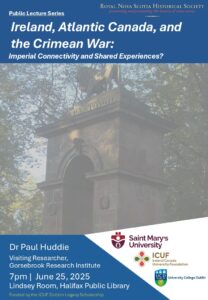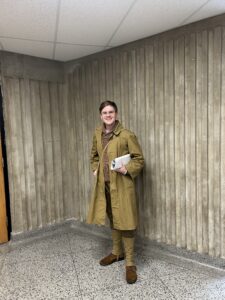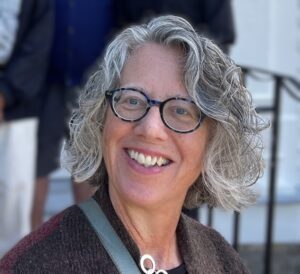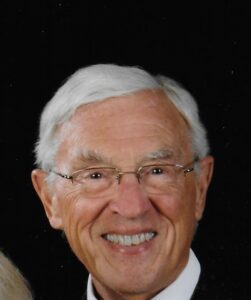Wednesday, June 25th, 2025, 7:00 pm (Atlantic), in-person at the Lindsay Children’s Room on the 2nd floor at the Halifax Central Library, 5440 Spring Garden Road, Halifax, Nova Scotia. Click here for the Zoom link.
Dr Paul Huddie is a historical researcher from Ireland, who is interested in war and society, principally within the British Empire in the long 19th century. He is a graduate of University College Dublin (BA, 2008; MA 2009) and Queen’s University Belfast (2014) and the author of The Crimean War and Irish Society (2015). His research has been published in several edited volumes and multiple peer-reviewed journals, including the British Journal for Military History, Women’s History Review, and Mariner’s Mirror, and he is also the co-editor of New Perspectives on Conflict and Ireland in the Nineteenth Century, which will be published by Liverpool University Press in Spring 2025. He is currently employed as a Research Project Manager at University College Dublin, where he supports three prestigious European Research Council-funded projects.
Abstract:
How did Canadians’ experience of the Crimean War of 1854-56 compare to people in Ireland (or Britain)? Using the Welsford-Parker Monument in Halifax as its focal point, this lecture will explore the themes of popular culture, identity, and memory within both the imperial and settler-colonial contexts of Atlantic Canada and contrast them with the Irish experience. All with a view to identify shared experiences of imperial warfare in the nineteenth century. This research and lecture has been supported by the Ireland Canada University Foundation’s Craig Dobbin Legacy Programme.














